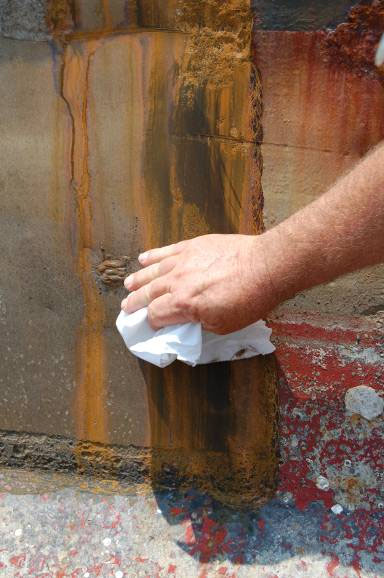Some History of Chalmers and the Moutons
What a small world. “I had no idea that you know Mary Mouton,” I reply.
“Not so much your Mary Mouton, her parents,” Chalmers says. “Your Mary was a little girl in a pink dress at my father’s funeral. Margaret, Mary’s mother, married Hamilton Mouton who claimed descent from the original Acadian Moutons that settled on the Mississippi River above New Orleans in or around the 1760’s. I have always doubted that lineage, but that may be my jealousy speaking.”
“You were sweethearts,” I tease Chalmers, whom I consider a very likeable person.
“I thought so,” the old man spoke with some bitterness, “but Margaret’s head was always easily turned, and Hamilton was a fast talker. Dead now, though.”
Do I hear suppressed satisfaction in that remark? With the rain ending, my companion closes his umbrella and hooks it over his right arm. Through the open door behind us we hear the restless stir of people getting up to leave the chapel. He uses his left hand to pull me along the walk by the elbow. I look around for my “young man.”
“Ouch!” I haven’t gone barefooted in a long time. Despite Chalmer’s urging, my barefoot progress is slow as I pick my way over loose pebbles scattered across the concrete.
We stop in the shade of a pecan tree at the edge of the parking lot—he probably wants to avoid his mother who will be anxious to reclaim her son from the grasp of unfashionable females. I continue to hold my shoes in one hand while I balance on one foot, trying to dislodge a piece of stone from between two of my toes on the other.
“What is it you wanted to talk to me about, Mr. Lehman?” I hope the conversation will be short. I visualize Mark seeing me with Chalmers and thinking he is my father. What man is going to come up to a woman who is talking with her father!
“Ah,” Chalmers hesitates, appearing to be considering several options. “There is a privacy question, you know, and matters of some delicacy that often impede the consideration of greater good.” The man’s spring needs winding!
“Yes?” I can’t think of anything to short circuit what looks to be a lengthy process of deliberation. Is that his mother’s walker appearing around the screen of ivy? “Oh, does your mother need help? She looks like she’s headed our way.”
That got things moving. “Your Mary called me not too long ago,” he continues with renewed energy. “She was very upset—not about her job, at least not directly,” he hurries on to forestall any questions. “Did you know that she has a half sister?”
“I had no idea,” I return, wondering where this was leading. “I’ve had discussions with her about music and food, but nothing personal ever comes up in our conversations. Friday we talked about going out together, so I guess she doesn’t have much social life. All I really know is that she’s an experienced engineer and handles her responsibilities quite well.”
By this time, Matilda has turned the corner, and I watch her with her walker trying to accelerate in our direction. At the moment her way is blocked by a determined looking Luther who is no doubt flattering her with the view of obtaining more donations credited to his account. I feel the daggers whizzing past my tender skin. She tries to jab Luther’s foot with one leg of the walker, but the Assistant Pastor dances nimbly aside while still blocking her progress. For once I applaud his verbosity.
Chalmers, silent with lost momentum, lets his eyes drift downward across my chest. I resist the urge to see what’s showing. Something, evidently. He hurries through the danger zone and pokes murderously at a scuttling beetle with the tip of this umbrella, impaling the unlucky creature an inch short of its shelter under a half buried brick. Coleoptera Matildus Marginalia.
Reenergized, he plows forward but I hear only part of what Chalmers is saying. “…you could talk to Mary. She respects you. You would be an invaluable resource, and she would be grateful that you….”
My sudden deafness is caused by the appearance of the one single man that’s been occupying my thoughts today. “Mark, have you met a friend of mine, Chalmers Lehman,” I interrupt Chalmers who is gaining momentum.
“Grateful? What’s this about being grateful?” Matilda Lehman’s shrill voice interrupts her son in mid-sentence. “Excuse me,” Matilda jams the walker between us. “Can you get the car, darling? Mother’s tired.”
While I’m contemplating the circular red mark on the top of my bare foot, Chalmers brushes past me and manages to whisper a cryptic phrase into my ear, “Need to talk later about Mary.”
Matilda tries one more stab, but this time I move my foot. She stomps off, practically dragging her walker. I bend down to slip on my sandals—and trip over my own foot. Marks strong grip prevents me from taking a tumble and gives me a warm glow all at the same time. “Slow down, Morgan.”
“Thanks!” My hands linger on a body I’m ready to have right now. I laugh because I sense that we both know that we need to play this out for the background church audience. “Mark, isn’t it?”
He whispers, “An ingenuous hello would have worked.”
I wonder how he’ll feel with a broken nose. “Didn’t Mrs. Perkins warn you about me?”
An endearing shadow of uncertainty flickers behind the twinkle in his green eyes. “Warn me? What about?”
Chalmers and Moutons
Subscribe
Subscribe to our e-mail newsletter to receive updates.












March 18, 2009
Concrete Evidence